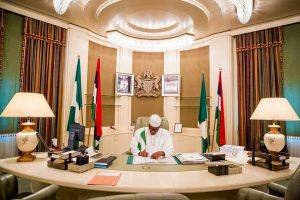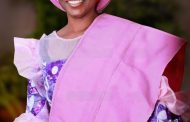It is good and proper that Imam Abubakar Abdullahi is being celebrated globally for accomplishing what the Nigerian State itself could not do, for whatever reasons. It is not a heroism that can be ignored because, in place of an absent state at a decisive moment, the Imam stepped out on June 23, 2018 in an independent minded defence of those who were utterly vulnerable to annihilation at that moment. It is, therefore, good that the world is able to salute the significance of his intervention. In that action, he spoke louder than any other voice for the religion of Islam.
That is why he is a refutation of wild, homogenising claims against Islam and Muslims. Similarly, he also serves notice that violence against the Other is not inevitable but a matter of choice. In other words, anyone can refuse to be a killer or to abet killing by successfully suppressing his or her own share of evil as against that of good. The third component of the refutation is how he shows that leadership matters or it is what matters most in for things to go either way. And that leadership is not only when someone is a president, governor or Senator. Leadership, like power, is everywhere.

President Buhari
Imam Abdullahi is, however, also a reminder of the rise of an annihilating strategy of responding to presumed hatred for Fulani herders wherever there has been skirmishes between a detachment and its host community. Without that, the situation the distinguished Imam stood up to would not have arisen. It is for this reason that Heavens itself could not but notice the nobility of the Imam. Those on that killing assignment could have blasted him out of existence without anyone knowing why because it was not part of their brief to worry about anybody.
This is why those talking about Fulanisation and Islamisation without qualifiers might not be telling the whole truth. Unqualified claim of Islamisation would not be tenable because what has been unfolding is a deterrent use of violence involving some people using Islam to achieve certain ends. That is not totally strange. People will always try to use one religion or another or ethnicity to achieve even criminal ends. What is strange and is worth thinking about is how come state power is permanently caught off guard in terms of anticipating, blocking, engaging the killers on shoot-out or giving them a hurt pursuit. This is where the puzzle is.
One theory is that the president is personally implicated in the puzzle. The contrary opinion is that some local and/or foreign interests are at work. The tragedy is that Nigeria is not in the mood to look at each of these claims critically enough. The country is so thickly enveloped in partisanship and an infantile propaganda mood as to approach these issues from the critical distance, (not objectivity) required. The country is more than ever before in need of honest brokers.
Imam Abubakar Abdullahi and his fellow Christian leaders who have certainly being stepping in at life and death moments for the Other since Nigeria turned into a killing ground have simply offered themselves as a unique specie of honest brokers. Anyone who has lived in the northernmost part of the North in Nigeria will attest to so many Muslim and Christian leaders who have done what Imam Abubakar Abdullahi is being celebrated for today, certainly on a lesser but no less significant scale. Collectively, they speak to the possibility as well as the imperative of breaking barriers of suspicion and fear of each other that characterises relationship of Christians and Muslims in Nigeria. The suspicion and fear which are products of history as well as of deliberate manipulation by those who survive on doing so is MUCH. But all that can be upturned. And the global recognition and celebration of Imam Abubakar Abdullahi should be the beginning of that process. It is something that our departments of Mass Communications, Political Science, Sociology, Peace and Conflict Studies, International Relations and Religious Studies can expand by making this generation of honest brokers resource persons.




























